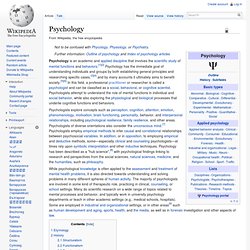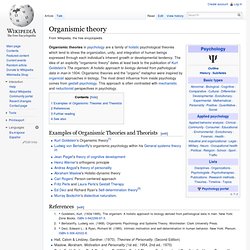

Calligraphy Alphabets. Inconspicuous vertical metrics. By Alec Julien Five?

There are generally taken to be five vertical measures of note in type design (from bottom to top): descender, baseline, midline*, caps-height, and ascender. But if you delve into the minutiae of font design, you soon discover that there are a slew of important vertical metrics that aren’t much talked about. Customer Services Online - View Payment History. Customer Online Services are provided by Centrelink and the Family Assistance Office.

By using your Customer Access Number (CAN) and password to logon to these Online Services, you accept the Conditions of Use. These may have been updated, please ensure that you read them. To use some of our Customer Online Services you first need to register. Free DIY PVC Pipe & Fitting Projects, Plans, and Pictures. FontForge. Smooth Jazz Radio on SKY.fm - #1 in Smooth Jazz. Humanistic psychology. Humanistic psychology is a psychological perspective which rose to prominence in the mid-20th century in response to the limitations of Sigmund Freud's psychoanalytic theory and B.F.

Skinner's behaviorism.[1] With its roots running from Socrates through the Renaissance, this approach emphasizes individuals inherent drive towards self-actualization and creativity. It typically holds that people are inherently good. It adopts a holistic approach to human existence and pays special attention to such phenomena as creativity, free will, and human potential. It encourages viewing ourselves as a "whole person" greater than the sum of our parts and encourages self exploration rather than the study of behavior in other people.
Humanistic psychology acknowledges spiritual aspiration as an integral part of the human psyche. Psychology. Psychology is an academic and applied discipline that involves the scientific study of mental functions and behaviors.[1][2] Psychology has the immediate goal of understanding individuals and groups by both establishing general principles and researching specific cases,[3][4] and by many accounts it ultimately aims to benefit society.[5][6] In this field, a professional practitioner or researcher is called a psychologist and can be classified as a social, behavioral, or cognitive scientist.

Psychologists attempt to understand the role of mental functions in individual and social behavior, while also exploring the physiological and biological processes that underlie cognitive functions and behaviors. While psychological knowledge is often applied to the assessment and treatment of mental health problems, it is also directed towards understanding and solving problems in many different spheres of human activity. Etymology History Structuralism Functionalism Psychoanalysis Behaviorism. Self-actualization. Self-actualization is a term that has been used in various psychology theories, often in slightly different ways.

The term was originally introduced by the organismic theorist Kurt Goldstein for the motive to realize one's full potential. Expressing one's creativity, quest for spiritual enlightenment, pursuit of knowledge, and the desire to give to society are examples of self-actualization. In Goldstein's view, it is the organism's master motive, the only real motive: "the tendency to actualize itself as fully as possible is the basic drive... the drive of self-actualization. "[1] Carl Rogers similarly wrote of "the curative force in psychotherapy - man's tendency to actualize himself, to become his potentialities... to express and activate all the capacities of the organism. Abraham Maslow. American psychologist Abraham Harold Maslow (; April 1, 1908 – June 8, 1970) was an American psychologist who was best known for creating Maslow's hierarchy of needs, a theory of psychological health predicated on fulfilling innate human needs in priority, culminating in self-actualization.[2] Maslow was a psychology professor at Brandeis University, Brooklyn College, New School for Social Research, and Columbia University.

Maslow's hierarchy of needs. Metamotivation. Metamotivation is a term coined by Abraham Maslow to describe the motivation of people who are self actualized and striving beyond the scope of their basic needs to reach their full potential. Maslow suggested that people are initially motivated by a series of basic needs,[1] called the hierarchy of needs. Maslow states, “Self-actualizing people are gratified in all their basic needs (of belongingness, affection, respect, and self-esteem)”.[2] Once a person has successfully navigated the hierarchy of needs thus satisfying all their basic needs, Maslow proposed they then travel “a path called growth motivation”.[3] In Maslow's view[edit] Not all people that satisfy their basic needs automatically become driven by B-needs.
Homeostasis. Homeostasis, also spelled homoeostasis (from Greek: ὅμοιος homœos, "similar" and στάσις stasis, "standing still"), is the property of a system in which variables are regulated so that internal conditions remain stable and relatively constant.

Examples of homeostasis include the regulation of temperature and the balance between acidity and alkalinity (pH). It is a process that maintains the stability of the human body's internal environment in response to changes in external conditions. The concept was described by French physiologist Claude Bernard in 1865 and the word was coined by Walter Bradford Cannon in 1926.[1] Although the term was originally used to refer to processes within living organisms, it is frequently applied to automatic control systems such as thermostats. Homeostasis requires a sensor to detect changes in the condition to be regulated, an effector mechanism that can vary that condition; and a negative feedback connection between the two. Biological[edit] Self-respect: Definition, Synonyms from Answers. Self-esteem: Definition, Synonyms from Answers.
Carl Rogers. Carl Ransom Rogers (January 8, 1902 – February 4, 1987) was an influential American psychologist and among the founders of the humanistic approach (or client-centered approach) to psychology.

Rogers is widely considered to be one of the founding fathers of psychotherapy research and was honored for his pioneering research with the Award for Distinguished Scientific Contributions by the American Psychological Association (APA) in 1956. The person-centered approach, his own unique approach to understanding personality and human relationships, found wide application in various domains such as psychotherapy and counseling (client-centered therapy), education (student-centered learning), organizations, and other group settings. For his professional work he was bestowed the Award for Distinguished Professional Contributions to Psychology by the APA in 1972.
Kurt Goldstein. Kurt Goldstein (November 6, 1878 – September 19, 1965) was a German neurologist and psychiatrist who was a pioneer in modern neuropsychology.

He created a holistic theory of the organism based on Gestalt theory which deeply influenced the development of Gestalt therapy. His most important book in German Der Aufbau des Organismus (1934) has been published again in English: The Organism (1995) with an introduction by Oliver Sacks. Goldstein was co-editor of the Journal of Humanistic Psychology. Biography[edit] Kurt Goldstein was born in 1878 in Kattowitz, a city in southern Poland, into a large Jewish family. In 1926 Fritz Perls became his assistant for a year, and Lore Posner studied gestalt psychology with Gelb. Organismic theory. Organismic theories in psychology are a family of holistic psychological theories which tend to stress the organization, unity, and integration of human beings expressed through each individual's inherent growth or developmental tendency.

The idea of an explicitly "organismic theory" dates at least back to the publication of Kurt Goldstein's The organism: A holistic approach to biology derived from pathological data in man in 1934. Organismic theories and the "organic" metaphor were inspired by organicist approaches in biology. The most direct influence from inside psychology comes from gestalt psychology. Philosophy. Philosophy is the study of general and fundamental problems, such as those connected with reality, existence, knowledge, values, reason, mind, and language.[1][2] Philosophy is distinguished from other ways of addressing such problems by its critical, generally systematic approach and its reliance on rational argument.[3] In more casual speech, by extension, "philosophy" can refer to "the most basic beliefs, concepts, and attitudes of an individual or group".[4] The word "philosophy" comes from the Ancient Greek φιλοσοφία (philosophia), which literally means "love of wisdom".[5][6][7] The introduction of the terms "philosopher" and "philosophy" has been ascribed to the Greek thinker Pythagoras.[8]
Metaphysics. Metaphysics is a traditional branch of philosophy concerned with explaining the fundamental nature of being and the world that encompasses it,[1] although the term is not easily defined.[2] Traditionally, metaphysics attempts to answer two basic questions in the broadest possible terms:[3] Ultimately, what is there? What is it like? Prior to the modern history of science, scientific questions were addressed as a part of metaphysics known as natural philosophy. Originally, the term "science" (Latin scientia) simply meant "knowledge". The scientific method, however, transformed natural philosophy into an empirical activity deriving from experiment unlike the rest of philosophy. Etymology[edit] However, once the name was given, the commentators sought to find intrinsic reasons for its appropriateness.
Ontology. Study of the nature of being, becoming, existence or reality, as well as the basic categories of being and their relations Parmenides was among the first to propose an ontological characterization of the fundamental nature of reality. Epistemology. Logic. Logic (from the Ancient Greek: λογική, logike)[1] is the branch of philosophy concerned with the use and study of valid reasoning.[2][3] The study of logic also features prominently in mathematics and computer science. Philosophy of religion. Philosophy of mind. Philosophy of language. Aesthetics. Political philosophy.
Ethics. The three major areas of study within ethics are:[1] Existence. Mathematics. Object (philosophy) Property (philosophy) Daniel Dennett distinguishes between lovely properties (such as loveliness itself), which, although they require an observer to be recognised, exist latently in perceivable objects; and suspect properties which have no existence at all until attributed by an observer (such as being a suspect in a murder enquiry)[3]
Quantity. Fundamental interaction. Falsifiability. Ubuntu 10.04 Post-Install Guide: What to do and try after installing Lucid Lynx!
Help.